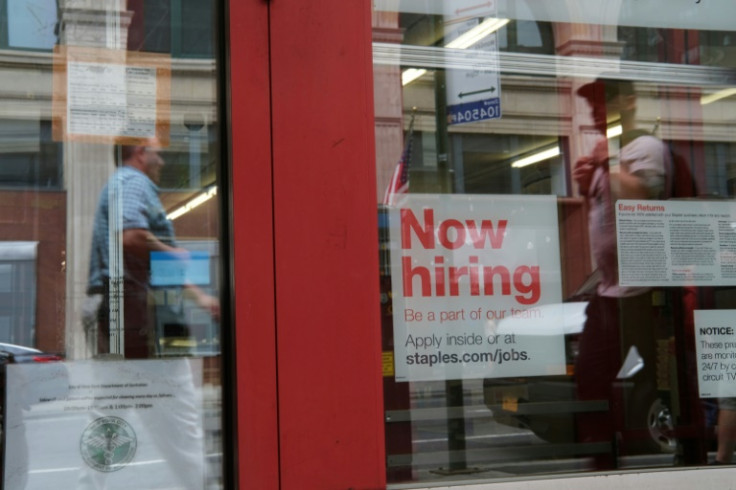
US job gains soared past expectations in December, according to government data released Friday, in a sign the labor market remains healthy just shortly before President-elect Donald Trump's inauguration this month.
Hiring in the world's biggest economy was 256,000 last month, up from a revised 212,000 in November, the Labor Department said.
The December figure was significantly above the market consensus estimate of 154,000, according to Briefing.com.
The jobless rate meanwhile crept down to 4.1 percent from 4.2 percent.
The latest report marks a solid end to 2024 for the jobs market, which has held up in the face of elevated interest rates, allowing consumers to continue spending.
But Trump's return to the White House this month could bring uncertainty.
He has pledged to cut taxes, raise tariffs on imports and deport undocumented immigrants -- many of whom make up a significant part of the US labor force in sectors such as agriculture.
In December, average hourly earnings picked up 0.3 percent from the month before to $35.69.
From a year ago, wages were up 3.9 percent.
Labor market resilience and continued wage growth supports consumption, a key driver of the US economy.
Among sectors, the Labor Department said "employment trended up in health care, government, and social assistance."
Retail trade also added jobs in December after a loss in November.
"This is a good report, but not a blockbuster one as it seems at first glance," said Robert Frick, corporate economist at the Navy Federal Credit Union.
"A big chunk of the headline number is from post-hurricane recovery, and the range of hiring remains narrow," he noted.
Brendan Boyle, top Democrat on the House Budget Committee, lauded the job creation under outgoing President Joe Biden's administration, saying he had helped deliver "16.6 million new jobs by investing in America's workers and rebuilding our economy "
The better-than-expected job growth could lead the Federal Reserve to be slower in cutting interest rates this year, as officials work to bring down inflation sustainably.
Such expectations sent Treasury yields higher early Friday.
"These data make at least a pause in cuts much more likely, which will push mortgage rates higher in the near term," said Mike Fratantoni, chief economist at the Mortgage Bankers Association.
But Samuel Tombs, chief US economist at Pantheon Macroeconomics, said that Fed officials are likely to conclude that monetary policy is still restrictive.
"Labor market data are so volatile and confidence intervals so wide that trends are best determined from at least six months of data," he said in a note.







